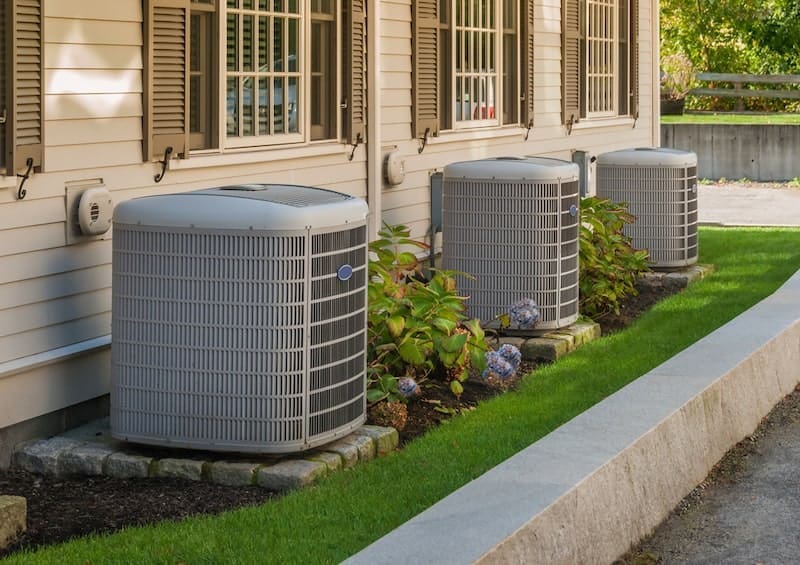Have you ever wondered how you can make your HVAC system better so it uses less energy and saves more money? There are ways to optimise your HVAC system to reduce energy expenditure, cut costs, and promote sustainability. This guide covers practical strategies like regular maintenance, energy audits, smart thermostats, and upgrading to efficient equipment. Improve your HVAC system’s performance for year-round energy savings and improved comfort.
Understanding HVAC Systems
HVAC stands for Heating, Ventilation, and Air Conditioning. These systems provide indoor comfort by regulating humidity, temperature, and air quality. Efficient HVAC systems substantially add to energy savings by lowering utility costs and overall environmental impact. Improve efficiency by doing regular maintenance, upgrading to energy-efficient systems, and using smart thermostats.
When you understand and apply these basic suggestions, your HVAC system will run more efficiently which improves your comfort and lowers the amount of energy you use. There are companies, like Utility Bidder, that help improve HVAC systems by identifying energy consumption inefficiencies and adjusting settings to lower energy waste.
Conducting an Energy Audit
Conduct a thorough energy audit to assess your HVAC system’s performance. An energy audit calculates your energy consumption, assesses equipment efficiency, and evaluates maintenance records to look for inefficiencies and necessary improvements.
Look for areas of energy loss that can drastically impact performance, like insufficient insulation or leaks in ductwork. There are various tools you can use to collect accurate data, including thermal imaging cameras, energy meters, and airflow testers. Regular audits accentuate inefficiencies and lay the foundation for select improvements that ultimately lower energy costs and make systems more reliable.
Regular Maintenance: Key to Efficiency
HVAC systems need regular maintenance checks to perform efficiently. This improves the performance and extends the lifespan of your HVAC system, which lowers bills and saves energy.
Ensure you replace filters and clean ducts regularly to stop airflow problems and lower energy usage. Filters must be changed every 1-3 months and ducts cleaned every year. Arrange professional inspections to spot possible issues early and ensure the system runs efficiently. These professional check-ups must be conducted at least once a year.
Smart Thermostats: Enhancing Control
Smart thermostats have advanced features that help improve temperature settings, including scheduling, remote access, and learning algorithms. These thermostats adapt according to your habits to significantly lower your energy usage. Combine these devices with your HVAC system to increase efficiency and ensure smooth operation.
Pick a smart thermostat model that is compatible with your current setup and explore settings that fit your lifestyle. Conduct regular reviews of the energy reports given by your smart thermostat to make informed adjustments. This reduces your energy consumption and makes your home more comfortable.
Sealing and Insulating Ductwork
Ensure your ductwork is sealed to increase energy efficiency, so your home doesn’t lose up to 30% of heating and cooling energy. Seal joints and connections with mastic sealant or metal tape to ensure a tight fit. Ducts must regularly be inspected for leaks, especially in attics and basements.
Insulate ducts, especially in unconditioned spaces, to lower energy loss and maintain temperature. Stop heat gain or loss with proper insulation, which reduces energy bills and enhances HVAC performance. Focus on these directions to increase your system’s efficiency and save energy costs.
Upgrading to Energy-Efficient Equipment
Upgrade to modern and energy-efficient HVAC units to drastically lower energy costs and improve comfort. Choose systems with superior performance, as indicated by high Seasonal Energy Efficiency Ratio (SEER) and Energy Efficiency Ratio (EER) ratings.
Various financial grants and incentives in the UK can help offset upgrade costs, including the Energy Company Obligation (ECO) scheme. Spending money on energy-efficient equipment will reduce your utility bills and support a more sustainable environment. Talk to local authorities or energy providers for more information on available incentives.
Implementing Zoning Systems
Use HVAC zoning to split your home into sections and allow tailored heating and cooling for each space. This drastically lowers energy consumption because heating or cooling only happens in occupied areas, which reduces bills.
Evaluate your spaces to identify zones according to consumption patterns and effectively implement zoning. Install a programmable thermostat in each zone and think about getting professional help for duct modifications. Review and adjust thermostat settings regularly and every season to increase efficiency. Zoning improves comfort and maintains sustainable energy practices in homes and businesses.
Monitoring and Adjusting System Performance
Keep monitoring your HVAC system’s performance to improve energy efficiency and lower costs. Get essential information about consumption patterns with real-time energy tracking tools, like smart thermostats and energy management systems. Evaluate this data regularly to spot inefficiencies.
You can substantially increase performance by adjusting settings according to occupancy and seasonal changes. Adjust temperature settings when no one is in the building to save energy. Use these strategies to ensure your HVAC system operates at its best throughout the whole year.
Conclusion
Implement these strategies to improve your HVAC system and spend less energy, which saves significant costs and enhances comfort. Regular maintenance, smart upgrades, and diligent monitoring are key to achieving a more efficient and sustainable HVAC system.


